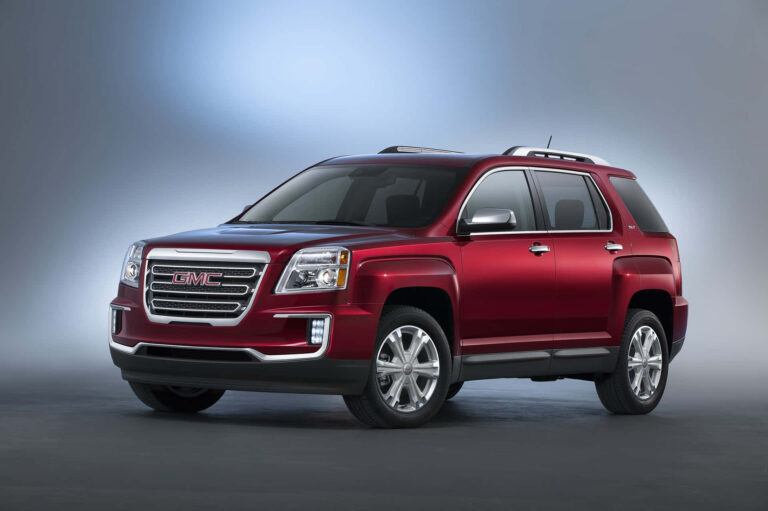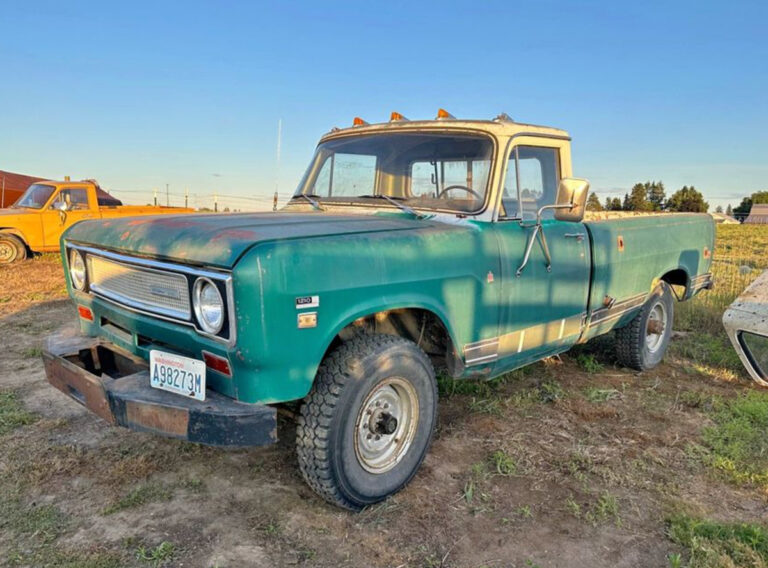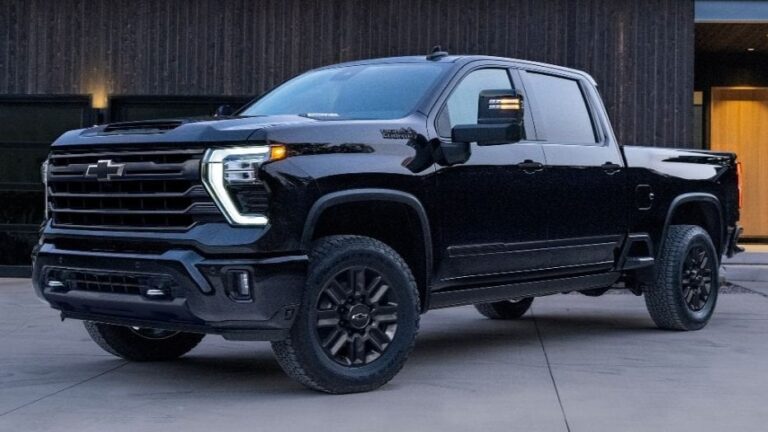Used Ford Raptor Trucks For Sale: Your Ultimate Buyer’s Guide
Used Ford Raptor Trucks For Sale: Your Ultimate Buyer’s Guide cars.truckstrend.com
The Ford F-150 Raptor isn’t just a truck; it’s a statement. Born from the unforgiving demands of desert racing, the Raptor redefined what a production pickup could do, blending formidable off-road prowess with everyday usability. Its aggressive stance, specialized suspension, and powerful engines have cemented its status as an icon in the automotive world. While a brand-new Raptor comes with a significant price tag, the market for used Ford Raptor trucks for sale offers an enticing alternative, providing an opportunity to own a piece of this legendary performance at a more accessible price point.
This comprehensive guide will navigate the landscape of used Ford Raptors, from understanding their unique appeal and the nuances of each generation to practical advice on what to look for, where to buy, and what to expect once you’re behind the wheel. Whether you’re an off-road enthusiast seeking adventure or simply desire a truck that stands out from the crowd, a used Raptor might just be your perfect match.
Used Ford Raptor Trucks For Sale: Your Ultimate Buyer’s Guide
I. Why Choose a Used Ford Raptor? The Allure of Pre-Owned Power
Opting for a used Ford Raptor presents a compelling proposition for several reasons, making it a smart choice for many buyers:
- Significant Value Proposition: New vehicles experience rapid depreciation, especially in their first few years. By choosing a used Raptor, you let the first owner absorb the steepest part of this depreciation curve, allowing you to acquire a high-performance vehicle at a considerably lower cost.
- Proven Off-Road Capability: Raptors are built for adventure. Their factory-installed features, such as Fox racing shocks, wider track, reinforced frame, and specialized terrain management systems, provide unparalleled off-road capability right off the lot. A used Raptor has likely already proven its mettle, and its robust design ensures it’s ready for more.
- Durability and Reliability: Based on the venerable Ford F-150 platform, Raptors inherit a reputation for toughness and longevity. While specific maintenance is crucial for any high-performance vehicle, the underlying architecture is designed to withstand rigorous use.
- Retained Resale Value: Raptors, new or used, tend to hold their value remarkably well compared to many other trucks. Their cult following and unique capabilities ensure a consistent demand in the secondary market.
- Access to Different Generations: The used market offers the unique opportunity to choose between different generations, each with its own characteristics, engine options, and technological features, allowing buyers to select the one that best fits their preferences and budget.

II. Understanding the Generations: A Brief History of the Beast
The Ford Raptor has evolved through three distinct generations, each bringing advancements in power, technology, and design. Understanding these differences is crucial when considering a used model.
First Generation (Gen 1: 2010-2014)
- Engines: Initially offered with a 5.4L Triton V8 (310 hp), which was quickly superseded by a more powerful 6.2L Boss V8 (411 hp, 434 lb-ft of torque) from 2011 onwards.
- Key Features: This is the original Raptor, easily recognizable by its bold "FORD" grille. It featured internal bypass Fox shocks, a wider stance, unique body panels, and a robust, steel-bodied construction. It’s known for its raw, old-school V8 rumble and mechanical feel.
- Considerations: Being the oldest generation, these models will typically have higher mileage and may require more attention to wear items. The V8 engine provides a classic truck feel, but fuel economy is a major consideration.
Second Generation (Gen 2: 2017-2020)
- Engine: Ford made a significant shift, equipping the Gen 2 Raptor with a high-output 3.5L EcoBoost Twin-Turbo V6 (450 hp, 510 lb-ft of torque), paired with an advanced 10-speed automatic transmission.
- Key Features: This generation adopted the aluminum body of the standard F-150, resulting in significant weight savings and improved fuel efficiency. It featured updated Fox 3.0 internal bypass shocks, a more sophisticated Terrain Management System, and a more modern interior with advanced infotainment.
- Considerations: While more powerful and efficient, some enthusiasts missed the V8 sound. The turbos offer immense torque, but their long-term maintenance should be considered.
Third Generation (Gen 3: 2021-Present)
- Engine: Continues with an updated high-output 3.5L EcoBoost Twin-Turbo V6 (450 hp, 510 lb-ft), now with a unique exhaust system for a more aggressive sound. The headline addition is the Raptor R (2023+), featuring a supercharged 5.2L Predator V8 (700 hp, 640 lb-ft of torque).
- Key Features: Introduced a five-link coil-spring rear suspension for improved ride comfort and off-road articulation, larger 3.1-inch Fox Live Valve shocks, and an even more aggressive styling with larger tires available from the factory. The interior saw a significant overhaul with larger screens and more advanced tech.
- Considerations: These are the newest used Raptors, commanding higher prices due to their modern features and recent release. The Raptor R is a limited, premium offering.
III. Key Considerations When Buying a Used Raptor
Purchasing a used Raptor requires careful scrutiny beyond what you might apply to a standard pickup. Its intended use means certain components endure more stress.
- Mileage and Overall Condition:
- High Mileage: Don’t automatically discount high-mileage Raptors if they have meticulous maintenance records. These trucks are built to last.
- Wear and Tear: Check the interior for excessive wear on seats, steering wheel, and controls. On the exterior, look for dings, scratches, and paint fade. Pay close attention to the truck bed, which often shows signs of heavy use.
- Signs of Hard Off-Road Use: This is critical. Inspect the undercarriage for bent skid plates, damaged control arms, dents in the differential housing, or compromised exhaust systems. Look for evidence of mud or sand in hard-to-reach places. Check the condition of the Fox shocks for leaks or damage.
- Maintenance History:
- Service Records: Request complete service records. Look for regular oil changes (especially critical for EcoBoost engines), differential fluid changes, transmission services, and suspension component checks.
- Recalls: Ensure all manufacturer recalls have been addressed.
- Pre-Purchase Inspection (PPI): This is non-negotiable. Have a trusted, independent mechanic (ideally one familiar with Raptors or performance trucks) perform a thorough inspection. They can identify issues easily missed by the untrained eye, such as worn bushings, steering rack play, differential noise, or turbocharger health.
- Modifications: Many Raptors are modified. While some modifications can be beneficial (e.g., quality aftermarket lighting, robust bumpers), others can indicate hard use or poor installation.
- Suspension Lifts/Leveling Kits: Check the quality of components and installation. Poorly installed lifts can lead to premature wear on steering and suspension parts.
- Larger Tires: Larger tires can strain drivetrain components, affect fuel economy, and may require re-gearing if not properly accounted for.
- Engine Tunes: Aftermarket engine tunes can increase power but may also stress the engine and void any remaining factory warranty. Inquire if the truck has been tuned and if the tune has been removed or if it’s still present.
- Title and Vehicle History Report: Always obtain a CARFAX or AutoCheck report. This will reveal critical information such as accident history, flood damage, salvage titles, odometer discrepancies, and the number of previous owners. Avoid vehicles with salvage, rebuilt, or flood titles unless you are fully aware of the risks and have had a highly specialized inspection.
IV. Where to Find Used Ford Raptors
The market for used Raptors is robust, offering several avenues for your search:
- Ford Dealerships: Many Ford dealerships offer Certified Pre-Owned (CPO) Raptors, which typically come with extended warranty coverage and a rigorous inspection process. They also have access to service history.
- Independent Used Car Dealerships: Reputable independent dealers often have a good selection of used trucks, including Raptors. Ensure they allow for independent pre-purchase inspections.
- Online Marketplaces: Websites like Autotrader, Cars.com, eBay Motors, and Facebook Marketplace offer a vast inventory from both dealers and private sellers. Be wary of scams and always verify listings.
- Specialty Off-Road Forums and Communities: Enthusiast forums (e.g., RaptorForumz.com, F150RaptorForum.com) and Facebook groups dedicated to Raptors can be excellent places to find well-maintained trucks from owners who understand their value.
- Private Sellers: Buying directly from a private seller can sometimes yield better prices, but it also requires more due diligence on your part regarding vehicle history and condition.
V. The Buying Process: Tips for a Smooth Transaction
Once you’ve found a potential candidate, follow these steps for a confident purchase:
- Research and Set a Budget: Determine which generation and features align with your needs and financial capacity, including potential maintenance and insurance costs.
- Thorough Test Drive: Don’t just drive it around the block. Take it on varying road conditions, including some unpaved roads if possible. Listen for unusual noises, feel for vibrations, and test all functions (4WD, off-road modes, infotainment).
- Negotiation: Arm yourself with market research (comparable sales in your area). Be prepared to walk away if the price isn’t right or if the seller is unwilling to budge on critical issues revealed during inspection.
- Financing and Insurance: Secure financing pre-approval if possible. Obtain insurance quotes before buying, as premiums for Raptors can be higher due to their value and performance nature.
- Paperwork and Title Transfer: Ensure all documentation is correct, including the title, bill of sale, and any lien releases. Understand your state’s requirements for title transfer and registration.
VI. Owning a Used Raptor: What to Expect
Life with a Raptor is an experience, but it comes with specific considerations:
- Fuel Economy: Regardless of the engine, Raptors are not known for their fuel efficiency. Expect single-digit or low-teen MPG figures, especially with aggressive driving or off-road excursions.
- Maintenance Costs: While generally reliable, maintenance can be more expensive than a standard F-150. Specialized Fox shocks, larger tires, and performance-oriented components come with a premium price for replacement parts and labor.
- Insurance Premiums: Due to their higher value, performance capabilities, and desirability, insurance premiums for Raptors tend to be higher than for conventional trucks.
- The Raptor Lifestyle: Owning a Raptor often means joining a vibrant community of enthusiasts. Be prepared for admiring glances, questions, and opportunities to connect with fellow owners. These trucks are designed to be used, so embracing the off-road lifestyle is part of the fun.
Used Ford Raptor Trucks For Sale: Estimated Price Guide
The price of a used Ford Raptor varies significantly based on generation, mileage, condition, trim level, modifications, and geographical location. This table provides a general estimate for models in good to excellent condition.
| Generation | Year Range | Engine | Average Price Range (USD) | Key Considerations |
|---|---|---|---|---|
| First Gen | 2010-2014 | 6.2L V8 (411 hp) | $25,000 – $45,000 | Classic V8 sound, higher mileage common, inspect for age-related wear. |
| Second Gen | 2017-2020 | 3.5L EcoBoost V6 (450 hp) | $45,000 – $70,000 | More power/efficiency, aluminum body, check turbo health and 10-speed transmission. |
| Third Gen | 2021-Present | 3.5L EcoBoost V6 (450 hp) | $70,000 – $95,000 | Coil-spring rear, latest tech, lower mileage. |
| Raptor R | 2023-Present | 5.2L Supercharged V8 (700 hp) | $100,000+ | Extremely rare and desirable, premium pricing, V8 roar. |
Note: Prices are estimates and can fluctuate wildly based on market demand, specific vehicle condition, maintenance history, and modifications.
Frequently Asked Questions (FAQ) about Used Ford Raptor Trucks For Sale
Q1: Is a used Ford Raptor reliable?
A1: Generally, yes. Built on the robust F-150 platform, Raptors are durable. However, their high-performance nature and common off-road use mean that maintenance and thorough pre-purchase inspections are crucial. Look for well-documented service history.
Q2: What’s the main difference between Gen 1, Gen 2, and Gen 3 Raptors?
A2: The primary differences are the engine and construction. Gen 1 has a 6.2L V8 and steel body. Gen 2 switched to an aluminum body and a 3.5L EcoBoost V6. Gen 3 continues with the updated EcoBoost V6 but adds a new coil-spring rear suspension and the option of the supercharged V8 Raptor R.
Q3: What specific things should I look for during an inspection of a used Raptor?
A3: Pay close attention to the suspension (Fox shocks for leaks, control arms, bushings), undercarriage (skid plates, frame damage, differential housing), tires (even wear, remaining tread), engine (any unusual noises, leaks), transmission (smooth shifts), and 4WD system. Look for signs of heavy off-road use or neglect.
Q4: Are parts for a Raptor expensive?
A4: Yes, some specialized Raptor-specific parts, like the Fox shocks, unique body panels, or performance components, can be significantly more expensive than standard F-150 parts. Larger, specialized tires also come at a premium.
Q5: What kind of fuel economy can I expect from a used Raptor?
A5: Raptors are not fuel-efficient. Expect single-digit to low-teen MPG figures (around 10-15 MPG combined) depending on the generation, driving style, and terrain. The EcoBoost V6 models are generally more efficient than the V8s, but not by a huge margin.
Q6: Can a Raptor be used as a daily driver?
A6: Absolutely. Despite their off-road prowess, Raptors offer a comfortable and spacious interior, making them perfectly capable daily drivers. However, their large size can be a challenge in tight city parking, and fuel costs will be a factor.
Q7: Is the V6 EcoBoost engine in the Gen 2/3 as good as the V8 in the Gen 1?
A7: The 3.5L EcoBoost V6 in Gen 2 and Gen 3 Raptors actually produces more horsepower and significantly more torque than the Gen 1 V8, offering superior acceleration and towing capabilities. While some enthusiasts miss the V8 exhaust note, the EcoBoost is a highly capable and efficient (relatively speaking) engine. The new Raptor R brings the V8 back with extreme power.
Conclusion
The Ford Raptor is more than just a truck; it’s a lifestyle vehicle engineered for adventure and built to conquer. The market for used Ford Raptor trucks for sale opens up an exciting world of possibilities, allowing enthusiasts to own this iconic machine without the full bite of new vehicle depreciation.
By understanding the distinct characteristics of each generation, diligently researching a vehicle’s history, and conducting thorough inspections, you can confidently navigate the used market. While ownership comes with considerations like fuel economy and specialized maintenance, the unparalleled performance, commanding presence, and vibrant community make the Ford Raptor an undeniably rewarding investment for those seeking a truck that truly stands apart. Embrace the journey, and prepare to unleash the beast.





